The African Pharmacogenomics Consortium/Network (APN) was formally launched on the 6th September 2018 at the University of Cape Town. However, its formation can be traced to August 2003, when African scientific experts focusing on pharmacogenomics met in Nairobi, Kenya, with the aim of strengthening pharmacogenomics research in Africa, through collaborations and postgraduate students training. You can read more from a peer reviewed publication.
- Professor Collen Masimirembwa
-

Prof. Collen Masimirembwa has founded and leads the African Institute of Biomedical Science and Technology (AiBST). Currently, he is the President of the African Pharmacogenomics Consortium (APC). His research focuses on pharmacogenetics and clinical pharmacology. He demonstrated the clinical relevance of Africa’s genomic diversity, especially with respect to the safe use of anti-retroviral drugs. He is a Distinguished Professor of Health Sciences (Witwatersrand University, South Africa), and a Fellow of the Zimbabwe Academy of Sciences and the African Academy of Sciences. He received many awards including the HUGO Africa Award (2018). Prof. Masimirembwa studied at the University of Zimbabwe and the Karolinska Institute, Sweden (PhD). After having worked for AstraZeneca Pharmaceutical Company as a Principal Scientist for about 10 years, he returned to Africa.
- Professor Collet Dandara
-
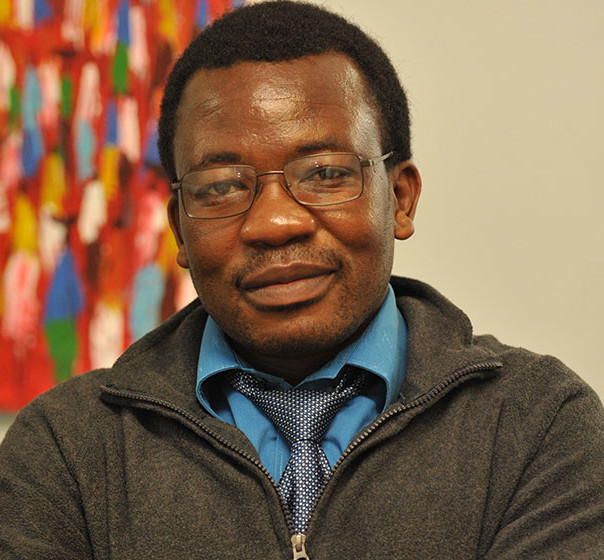
Prof. Collet Dandara is biomedical scientist with extensive experience in pharmacogenomics of infectious and cardiovascular diseases in African populations. His research is in the field of Genomics, focusing on pharmacogenomics (PGx), genetic susceptibility and drug metabolism. Prof Dandara’s research has contributed to the understanding of the pharmacogenomics of antiretroviral drugs and currently his research Unit, is investigating the pharmacogenomics of cardiovascular diseases including hypertension and cancer. He is considered one of the leading experts in pharmacogenomics on the African continent with an international standing in the field. He is a Fellow of the Academy of Science of South Africa (ASSAf Fellow), a Fellow of the African Academy of Science (AAS-Fellow) and was part of the inaugural World Academy of Sciences (TWAS) Young Affiliate/Alumni (TYAN) Executive Committee (2016-2021). Collet is an Academic & Researcher in the Division of Human Genetics & a full member of the Institute of Infectious Diseases and Molecular Medicine, at the University of Cape Town. He has a track record of successful supervision to graduation of postgraduate students (Honours, MSc and PhD) level and has supervised to graduation over 30 Honours students, least 20 MSc students and more than 10 PhD students. His research group regularly hosts postdoctoral Research Fellows, contributing to human capacity development. He was a Finalist in the NSTF-Bilton Awards, in 2014, in the category of Human Capacity development. He is widely published with >160 publications in international peer-reviewed journals, accumulating Google Scholar H-index of 35 and an i10-index of 100. He has a good understanding of the higher education system in Africa & internationally, including the funding landscape. Professor Dandara serves on the Board of the South African Medical Research Council (SAMRC), is on the Executive Committee of the African Society for Human Genetics (AfSHG) and is one of the founding members of the African Pharmacogenomics Network (APN). In 2021 he took over the leadership of the Southern African Society for Human Genetics (SASHG) as its Chair/President. Collet expresses a huge passion for knowledge generation, translation, and dissemination to the youth.
- Dr Fasinu, Pius S
-

Dr. Fasinu is an Associate Professor of Pharmacology at the Heersink School of Medicine, University of Alabama at Birmingham with a broad background knowledge and experience in Pharmaceutical Sciences. Trained as a Pharmacist in Nigeria, he obtained his master’s degree in biopharmaceutics from the University of the Witwatersrand before completing his doctorate in pharmacology at the Stellenbosch University. Dr. Fasinu completed a predoctoral fellowship in drug metabolism and pharmacokinetics (DMPK) at the Novartis Institute for Biomedical Research (NIBR), Basel, Switzerland, and later joined the University of Mississippi’s school of pharmacy as a postdoctoral research associate. Prior to his current position, Dr. Fasinu was an Assistant Professor of Pharmacology at Campbell University’s College of Pharmacy and Health Sciences. Dr. Fasinu’s research interest is in drug metabolism and pharmacokinetics (DMPK), and pharmacogenomics. He teaches pharmacogenomics and its clinical applications.
- Dr Michelle Skelton
-

Michelle is the Principal Investigator and the project lead for the DS-I Africa and H3Africa Coordinatng Centres. Her research background is in human and viral genomics with an emphasis on infectious disease, pharmacogenomics and virus restriction. She is passionate about forming cohesive networks within our international genomics and Data science consortia.
- Dr Victoria Nembaware
-
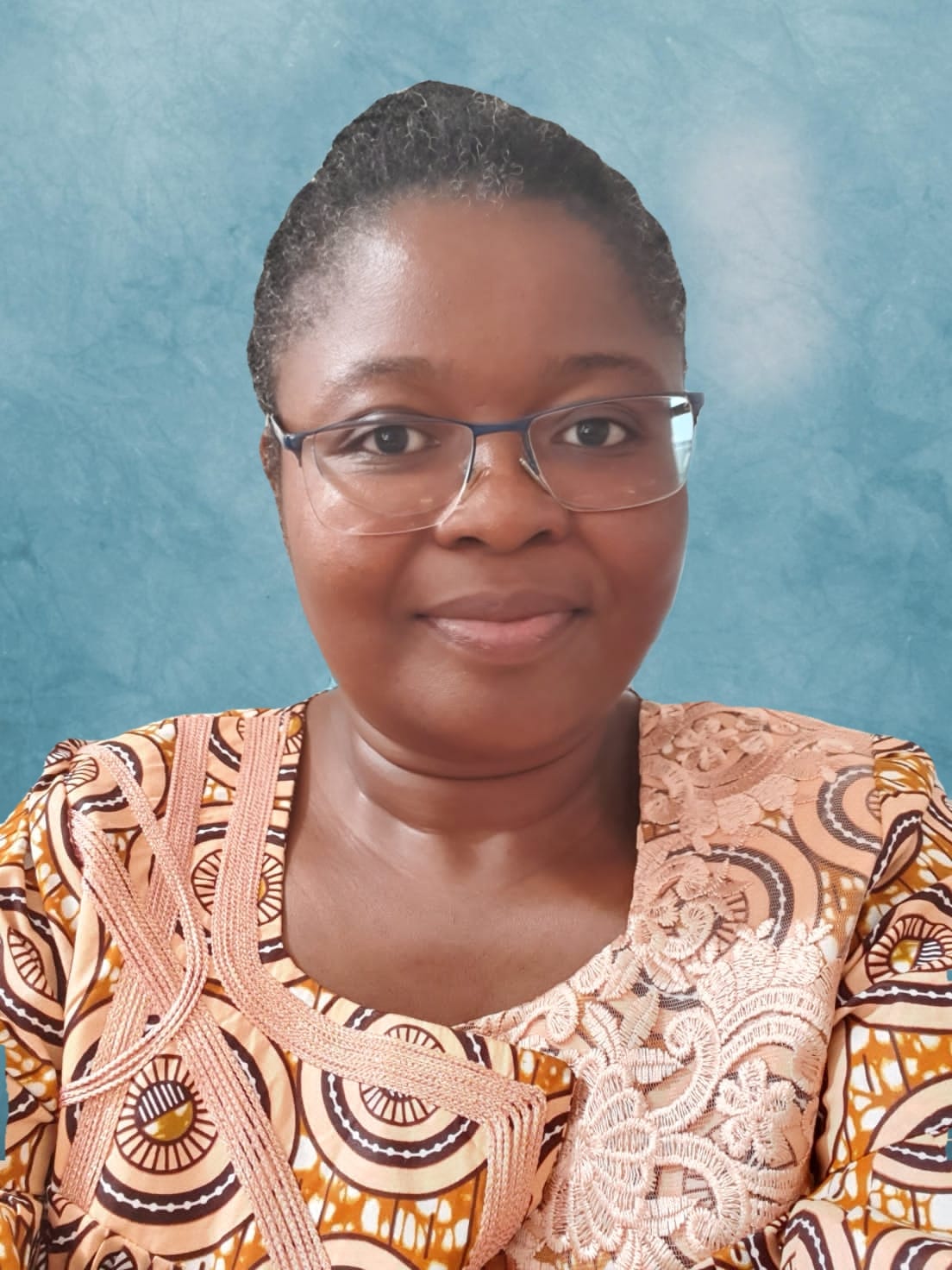
Dr. Nembaware was officially appointed as the Project Manager for SADaCC in November 2017 after about 4 years as the H3Africa training coordinator. Vicky is the current secretary for the Africa Society of Human Genetics. She has a PhD in Bioinformatics and an MPhil in Monitoring and Evaluation, Vicky has research experience in Bioinformatics and in the Public Health field. She also has experience in designing, monitoring and evaluation of projects in the Information Communication Technology field (particularly in mHealth). She has developed mobile phone apps to support research and to promote engagement between researchers and the general public on heredity and health in Africa. She has experience developing curricula and training in genomics. Throughout her career, she has endevoured to build capacity in genomics and genomic medicine across Africa.
- Ass. Professor Yosr Z. Haffani
-
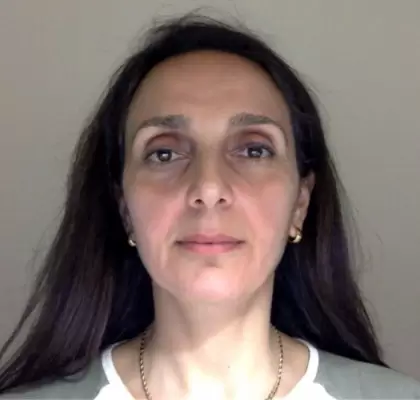
Ass. Prof. Yosr Z. Haffani, PhD
orcid.org/0000-0003-2956-3651
Higher Institute of Biotechnology Sidi Thabet (ISBST), University of Manouba, Tunisia. Team Leader Human Microbiome, Diabetes & Cancer Research
Dr. Haffani has 18 years of academic and research experience in Canada. Since 2013, she has held the position of Assistant Professor at the University of Manouba (UMA), Tunisia, where she is the team leader of a research group specializing in the Human Microbiome, Diabetes, and Cancer. Dr. Haffani received her PhD in Biology from the prestigious University Laval in Canada. She advanced her academic career through postdoctoral and research associate positions at the University of Toronto and the Lunenfeld-Tanenbaum Research Institute, where she refined her expertise in biomedical functional genomics, cancer research, and academic teaching. With a robust background in research, Dr. Haffani has built a proven track record in securing and managing successful international grants. Dr. Haffani has actively contributed to numerous high-impact projects funded by leading organizations such as the Canadian Natural Sciences and Engineering Research Council (NSERC), the National Institutes of Health (NIH), and the EU R&I Framework Programmes Horizon 2020, the bilateral MHESR Tunisia/NRF South Africa. She’s a recipient of the highly competitive DAAD Grant and serves as an international expert with the German Academic Exchange Service (DAAD). A co-founder of Junior BioContact Quebec, she has been instrumental in establishing a junior research group network focusing on biotechnology, leadership, and entrepreneurship at the University Laval.
Throughout her career, Dr. Haffani has been recognized as an expert in cancer research and biomedical sciences by international organizations. She was selected as one of the top experts in Tunisia by CREDIF/KINFO, Tunisian Female Expert by MESRS and the NEPAD Africa Biosciences Initiative database. Her leadership and scholarship have earned her prestigious awards, including the McMurrich Prize, the Aventis Biotech Challenge, UK Communicating with Executive Presence. She continues to contribute to the academic community as a permanent reviewer for journals like the prestigious The Pharmacogenomics Journal (Nature) and various grant bodies such as MESRS (Tunisia) and DAAD (Germany). Dr. Haffani’s work extends beyond research into mentorship, having supervised the successful graduation of 36 Honors students, 30 MSc students, and 8 PhD students from 2000 to 2024. She also served as a National Contact Point for Horizon 2020 in the Health, Demographic Change & Well-Being sector, reflecting her significant role in shaping research initiatives at the national and international levels. Her ongoing contributions to cancer research, biotechnology, and academic leadership continue to have a transformative impact on both the scientific community and the next generation of researchers.
- Dr Mohamed Nagy
-
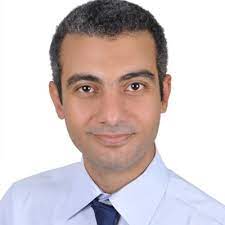
Dr. Mohamed is the head of the Personalized Medication Management Unit at the Children's Cancer Hospital 57357. He earned his Master's degree in Biotechnology from the American University in Cairo. He studied how specific genetic polymorphisms increase the risk of thrombosis in Egyptian patients with acute lymphocytic leukemia (ALL). Mohamed is considered one of the experts in clinical pharmacogenetics and Nutrigenomics in the Middle East and Africa. He dedicated his genetic knowledge not only to patients but also to allowing healthy individuals to find the best sports and nutrition routine tailored to their unique individual genetic makeup to achieve the best health outcomes. Mohamed is the founder of Pharmacogenomics Access & Reimbursement Coalition (PARC) and the founder of the Standardizing Laboratory Practices in Pharmacogenomics (STRIPE). Currently, he is leading the Pharmacogenomics Research Network Developing Countries Committee for the area of the Middle East and Africa and is head of the IVPN-Personalized Medicine Listserv.
Dr. Aniwaa Owusu Obeng

Dr. Aniwaa is the Senior Director of The Mount Sinai Pharmacogenomics Program and an Associate Professor in the Department of Medicine at the Icahn School of Medicine at Mount Sinai (ISMMS) in New York, USA. Dr. Owusu Obeng has spearheaded clinical pharmacogenomics implementation efforts at Mount Sinai for over a decade. She leads the development of provider and patient educational materials on pharmacogenomics. Moreover, Dr. Owusu Obeng directs clinical pharmacogenomics rotations for PGY1 and PGY2 pharmacy residents in the Mount Sinai Health System and Advanced Pharmacy Practice Experience rotation for final-year student pharmacists. Dr. Owusu Obeng obtained her Doctor of Pharmacy degree from Albany College of Pharmacy and Health Sciences (ACPHS) in Albany, NY. As the inaugural resident in the University of Florida Health Personalized Medicine Program, Dr. Owusu Obeng specialized in Pharmacogenomics and Drug Information. Her research interests mainly lie in developing best practice processes to effectively bridge the gap between the discovery of genetic determinants of therapeutic response and their adoption into routine clinical practice. Dr. Obeng has published over 40 peer-reviewed manuscripts and book chapters on pharmacogenomics and precision medicine. She is a guideline-writing member of the Clinical Pharmacogenetics Implementation Consortium (CPIC) and the current Chair of the Early Career committee in the Pharmacogenetics Global Research Network (PGRN). She is a 2017 ISMMS Leadership Emerging in Academic Departments Scholar; a member and 2017 MERIT Scholar of the American College of Clinical Pharmacy; the 2021 recipient of the Solomon Silver Award in Clinical Medicine at ISMMS and the 2022 recipient of the Outstanding Young Alumni Award from ACPHS.
Dr. Tinashe Adrian Mazhindu
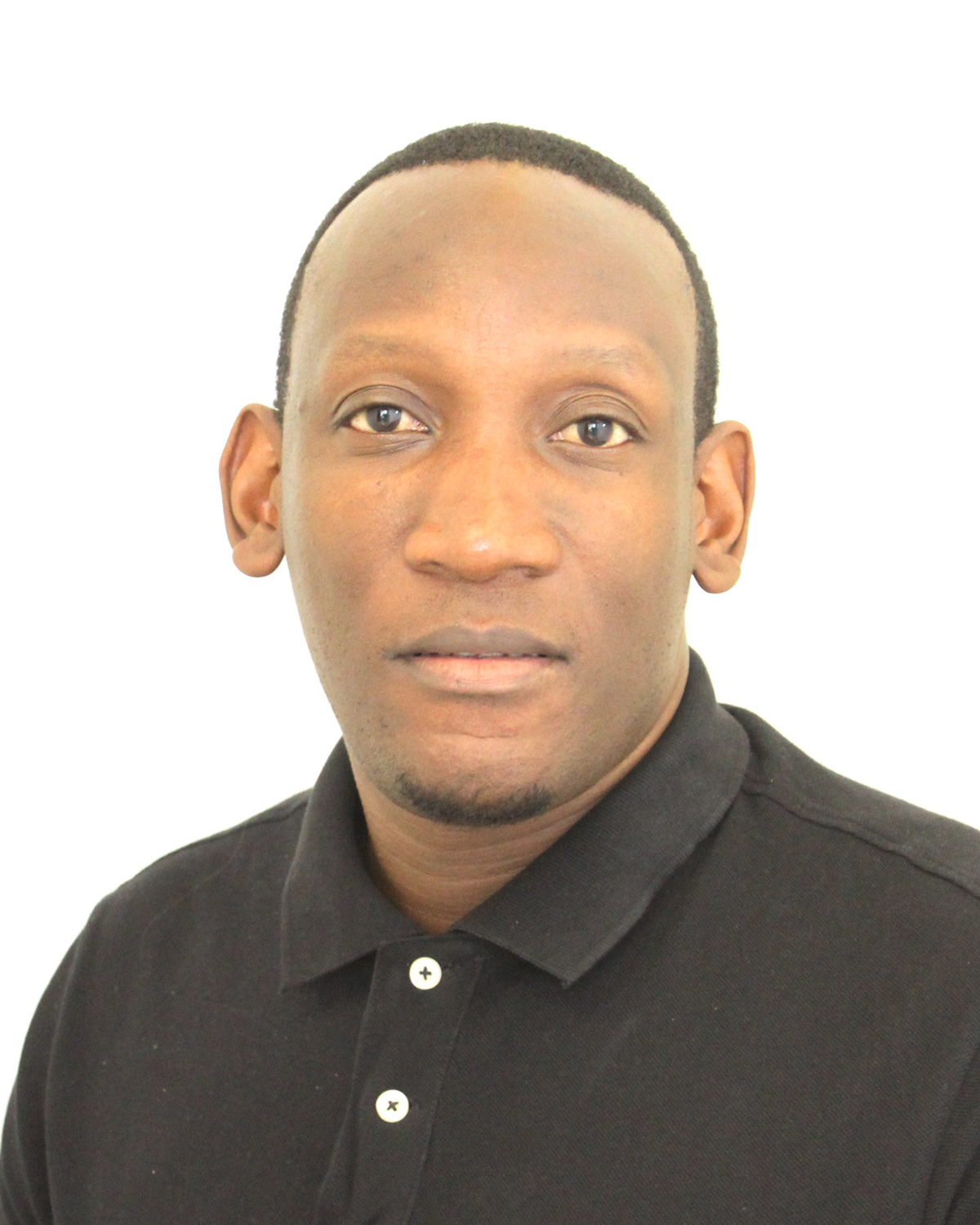
Tinashe A. Mazhindu is a consultant clinical oncologist based Parirenyatwa Group of Hospitals, Radiotherapy & Oncology Centre, Harare, Zimbabwe. Graduated with a Bachelor of Medicine and Bachelor of Surgery degrees (MBChB), Master’s in Medicine-Radiotherapy & Oncology (MMed) with Merit from the University of Zimbabwe and was a visiting scholar at Stanford University- Department of Chemical & Systems Biology-SPARK at Stanford focused on drug discovery and translational research. Currently he is a Clinical research fellow in the Department of Oncology, Medical Physics and Imaging Sciences at the University of Zimbabwe, and a senior scientist in the Pharmacogenomics clinical research at the African Institute of Biomedical Science and Technology and. His research work is focused on clinical pharmacogenomics, implementation sciences in genomics & therapeutics, and genomic-integrated clinical trial design and, longitudinal biobank.
Dr. Khuthala Mnika
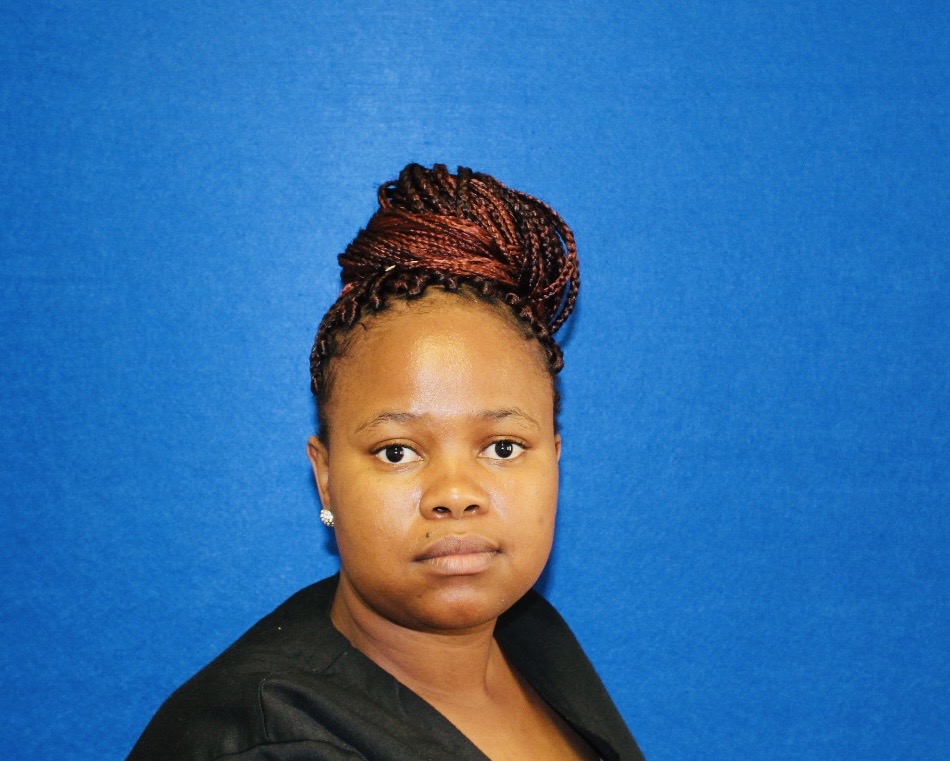
Dr. Khuthala Mnika is a highly accomplished Medical Scientist with a PhD degree from the Division of Human Genetics at the University of Cape Town. Her doctoral research was focused on the Pharmacogenomics of Sickle Cell Disease, with a specific emphasis on pain and drug metabolism-associated gene variants, as well as hydroxyurea-induced post-transcriptional expression of miRNAs in an African cohort. Dr. Mnika has previously served as a Senior Medical Scientist in the Human Genetics Division at the National Health Laboratory Services (NHLS)/University of the Witwatersrand. She is currently a lecturer at the University of Cape Town. Dr. Mnika's research interests are primarily centred around the pharmacogenomics of sickle cell disease therapeutics and the genetics aetiology of inherited kidney disease in Africa. Her expertise in these areas has been widely recognized by her peers review in 20 publications as a first and co-author. Dr. Mnika is the co-chair of the AfSHG-YIF. Her commitment to community engagement is evident through her active participation in the grade 11 learners' open day at her institute for over five years and participating in the AfSHG activities. Her efforts have contributed significantly to fostering a culture of knowledge-sharing and scientific inquiry among the youth upcoming researchers.